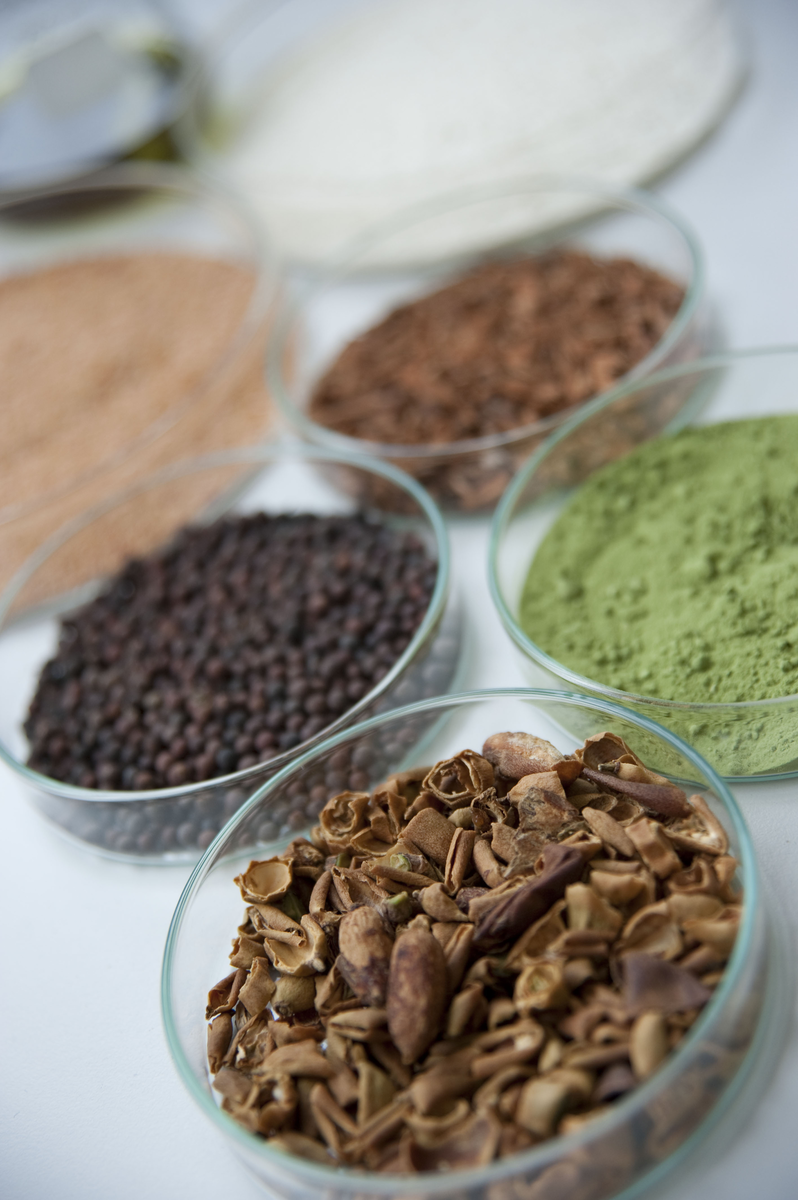Phytogenics – Digestibility is the key

As feed represents about 70% of the swine production cost, the current record-high feed prices are a major concern for swine producers. This calls for sustainable solutions, one being to optimise feed utilisation in a cost effective way.
By Tobias Steiner, Biomin, Austria
Lower digestibility of plant raw materials is not only visible in sub-optimal feed efficiency, but also by the negative effects directly on the gastrointestinal tract. The lower the digestibility of the diet, the more undigested feed in the gut which is subject to microbial fermentation. Microbial fermentation takes place mainly in the large intestine, but also, to a lesser degree, in the small intestine. The presence of undigested nitrogenous compounds (i.e. proteins) favours the formation of ammonia and biogenic amines by the intestinal microbiota.
These metabolites are undesirable not only because of their toxicity, but also because they are produced by decarboxylation of dietary essential amino acids. For example, cadaverine is made from lysine and skatole is made from tryptophan. Consequently, intestinal imbalances occur resulting in enhanced inflammatory processes and accelerated turnover of the intestinal tissue, which results in poorer performance and diarrhoea.
Hence, improved digestibility increases the supply of dietary essential amino acids, while relieving the animal from intestinal imbalances.
Phytogenic feed additives
Increasing numbers of scientific reports are being published, which indicate that phytogenic substances, i.e. plant-derived, have positive effects on feed efficiency in different animal species, including swine. These phytogenic substances include herbs, spices, essential oils and non-volatile extracts, from, for example, clove, anise, thyme, fennel or melissa, and many others. The flavouring properties as well as the beneficial effects of such substances on digestion and well-being in human nutrition have been recognised for thousands of years. In addition to their flavouring properties, other effects of phytogenic compounds include a stimulation of saliva and gastric juices, as well as anti-inflammatory, anti-oxidant and anti-microbial properties in the gastrointestinal tract.
In view of the biodiversity and consequently large number of available plant substances, the utilisation of phytogenic compounds in animal nutrition thus opens a lot of opportunities.
The products available in the market today are feed additives based either on single ingredients (such as oregano oil) or complex mixtures of plant-derived materials. Inclusion levels in complete feeds usually range between a few hundred grammes to several kilogrammes per metric tonne, depending on the concentration of the phytogenic compounds in the feed additive.
The effects of phytogenic feed additives can differ significantly, depending on the actual ingredients. As these additives have pronounced flavouring properties, their addition to the diet can enhance palatability. Of course, the flavouring properties between different phytogenic substances differ dramatically. In this regard, the use of complex mixtures offers advantages over single ingredient products because the right combination of phytogenic substances can create a highly pleasant and balanced flavour that encourages feed intake, even in higher dietary dosages. Also the effects of phytogenic additives in the gastrointestinal tract vary considerably between products. The combination of different phytogenic materials, for example finely ground whole herbs and spices, essential oils and non-volatile extracts, allows for making use of the full potential that plants offer. Recent studies indicate a pronounced effect of such mixtures on protein digestibility.
Phytogenic supplementation
The effect of a phytogenic feed additive (Digestarom) on nutrient digestibility has been well illustrated in a project conducted at the Free University of Berlin, Germany. The aim of this study was not only to show the effects of the phytogenic additive in a single standard trial, but the ability to repeat effects over several trials. Four trials with a total of 300 weaned piglets were carried out. Three of these trials were made under experimental conditions at the research station, whereas one trial was made under commercial conditions on a swine farm. The piglets were weaned at 25 days of age and fed typical starter (first and second week after weaning) and grower diets (third to sixth week after weaning). It is noteworthy that the diets did not contain NSP-degrading enzymes in order to determine the full potential of the phytogenic feed additive; however, the diets did contain a phytase enzyme.
The pigs receiving the diet containing the phytogenic product had the higher weight gain and a significant improvement in gain/feed ratio (0.66 vs 0.64, P<0.001).
The results of two trials conducted under experimental conditions were pooled to determine the apparent ileal digestibility coefficients. The ileal protein digestibility (Figure 1) improved by 9.8%. Figure 2 shows this improvement was due in part to a significant increase in the digestibility of essential and non-essential amino acids.
In addition, numerical differences in mineral digestibility were evident between the two groups. Calcium and Phosphorus digestibility values were 5.8% and 19.7% higher, respectively in the groups fed the phytogenic feed additive.
The improvement in protein and amino acid digestibility is regarded as a major factor contributing to the improvements in feed efficiency and growth performance when commercial diets are supplemented with phytogenic feed additives.
In contrast to feed enzymes, which usually target a specific anti-nutritive factor, for instance arabinoxylans in case of beta-xylanase and phytic acid in case of phytase, the improvement of digestibility by phytogenic substances seems to be related to nutrient availability and not to a specific substrate. Rather their effect is due to a stimulation of digestive secretions and a relief from intestinal imbalances in conjunction with a modulation of the intestinal microbiota.
Improving digestibility
With the current record-high feed prices, improving the digestibility of commercial diets is prerequisite to optimise feed utilisation. Recent researches showed that phytogenic feed additives can improve feed digestibility, especially for proteins and amino acids. Therefore, phytogenic feed additives are considered as valuable tools to secure better feed efficiency and maintain pig farming business profitable.
References available on request.











